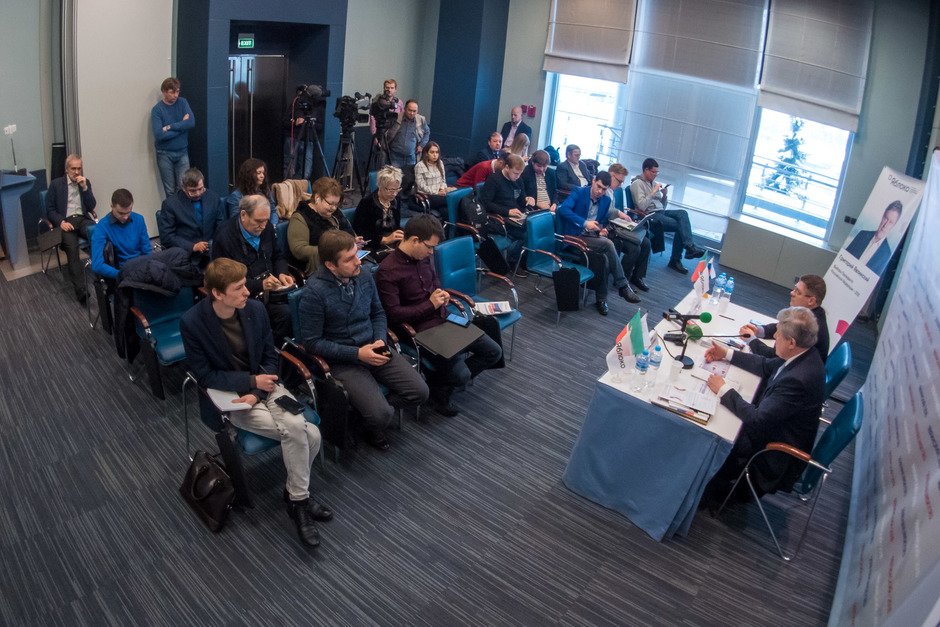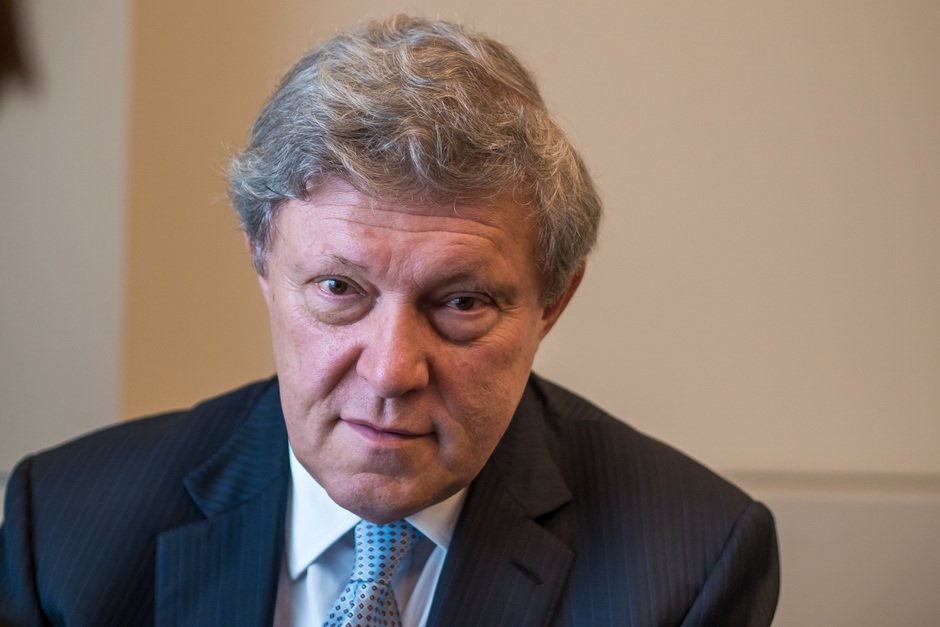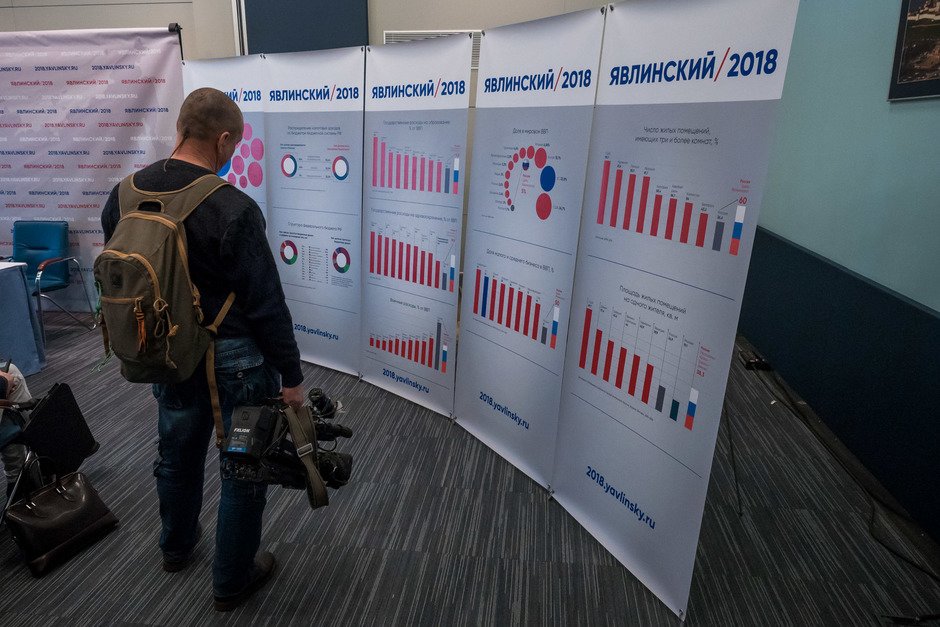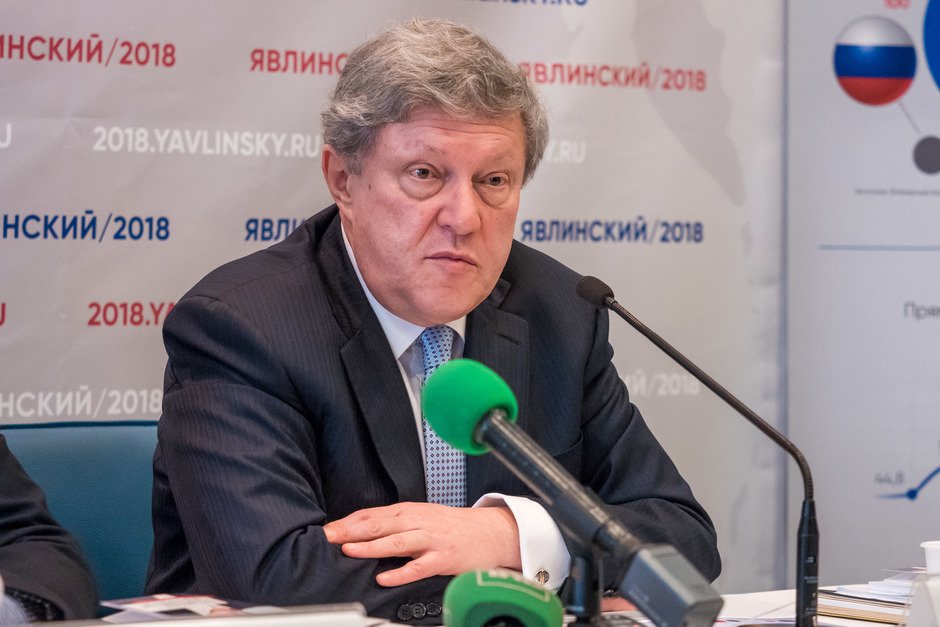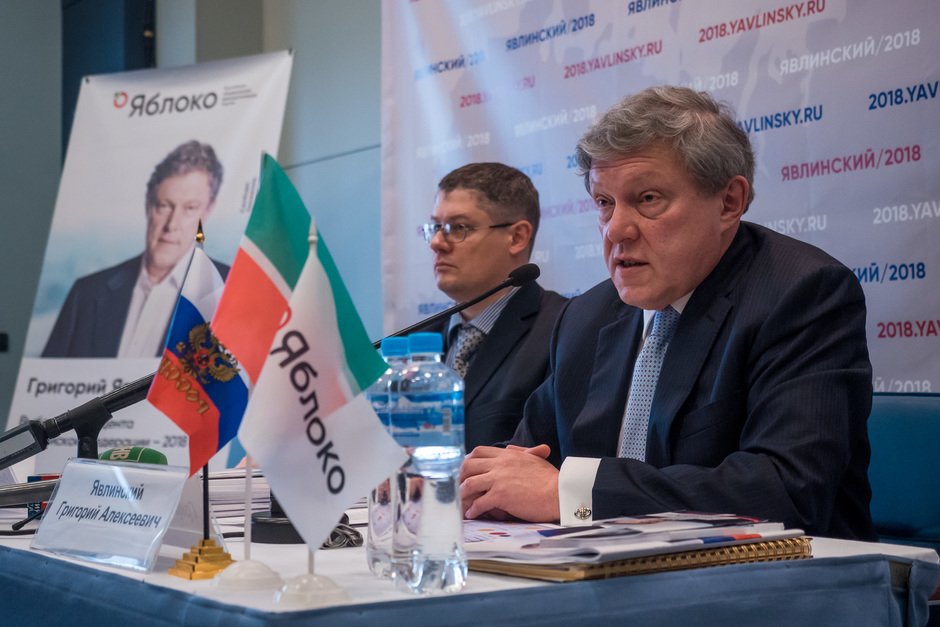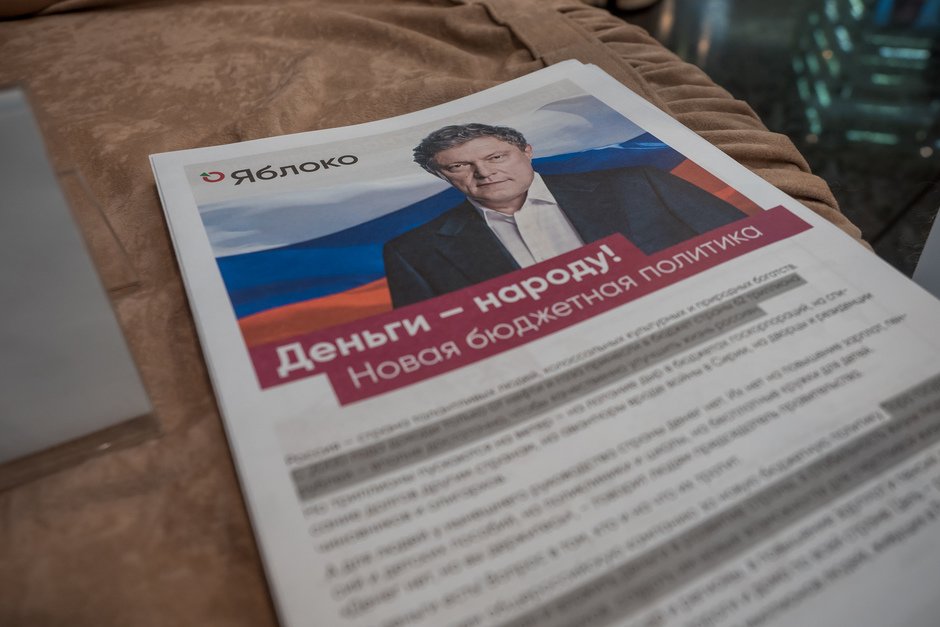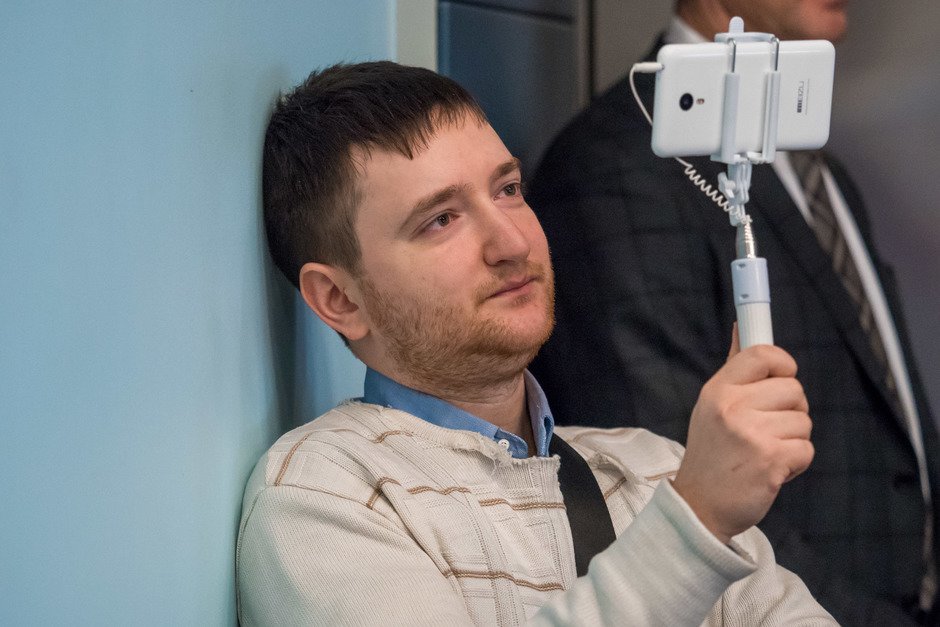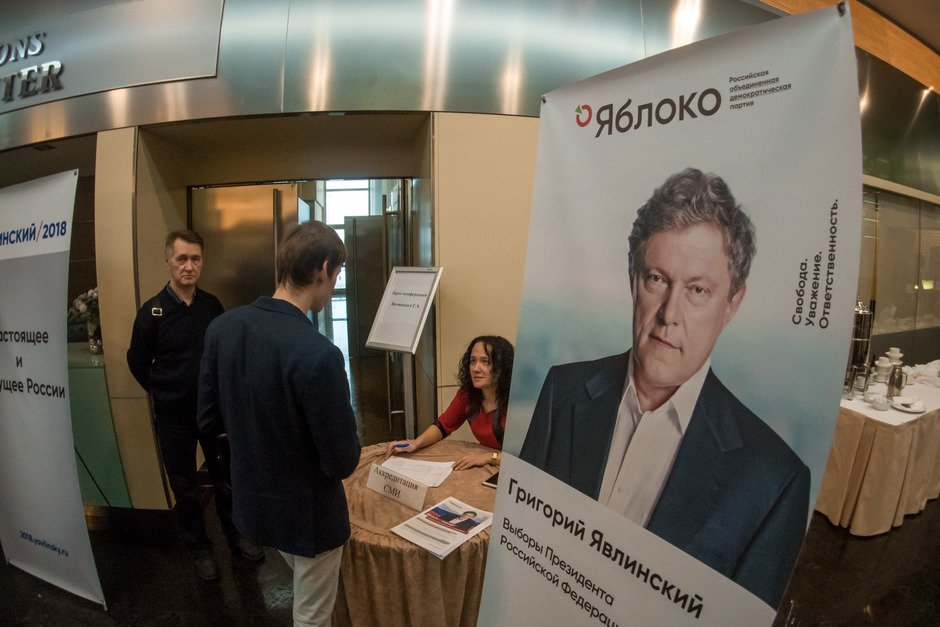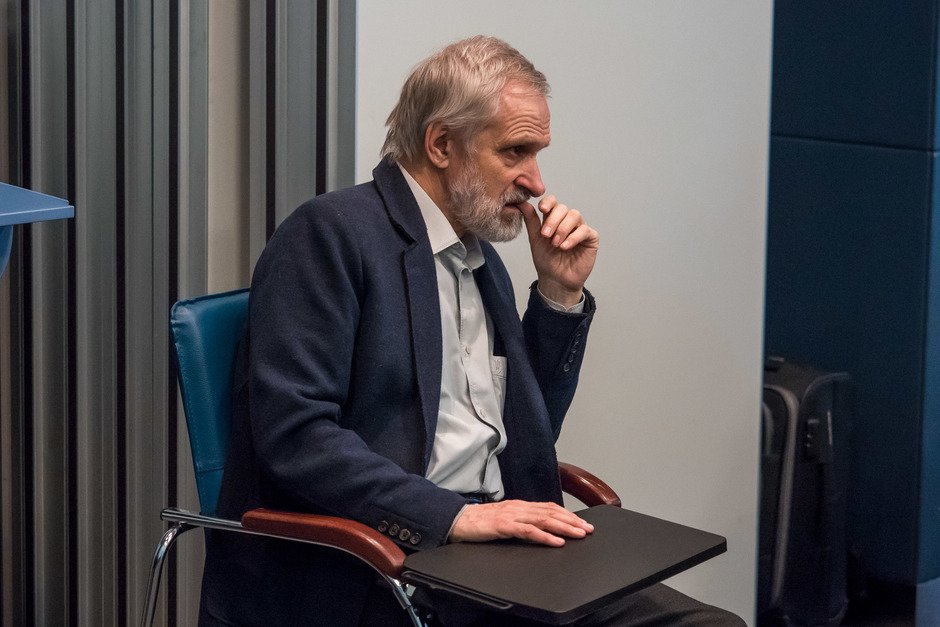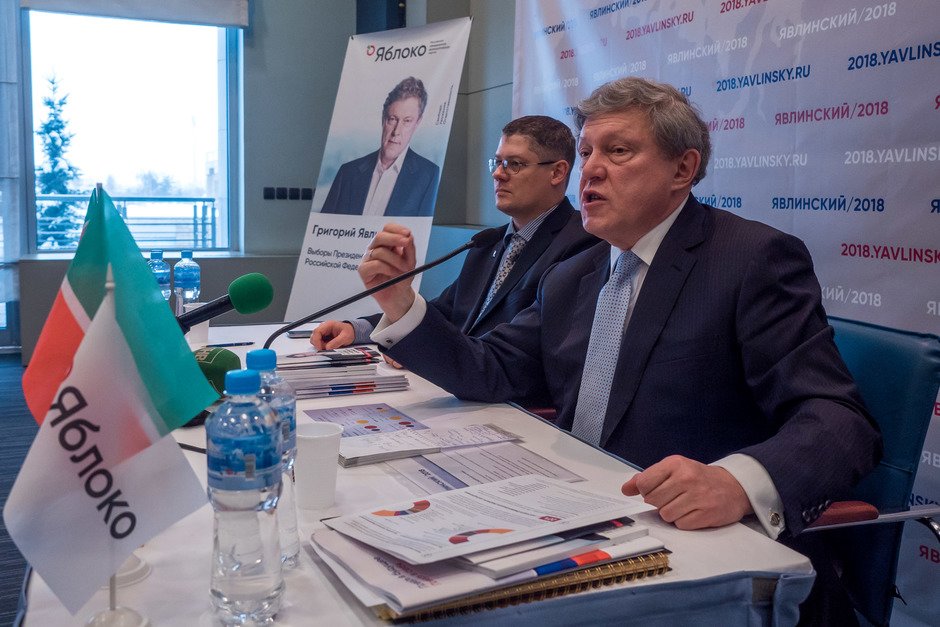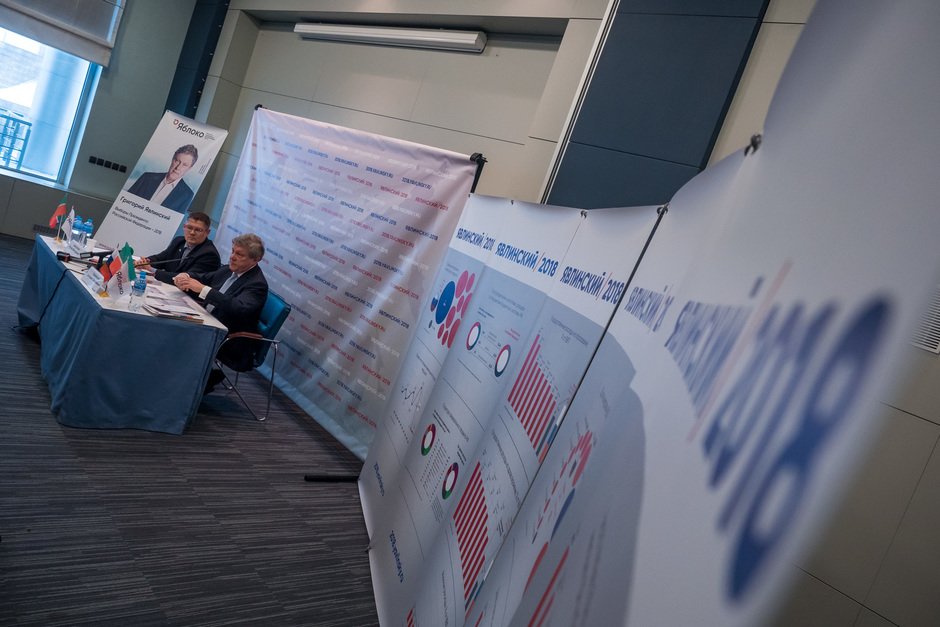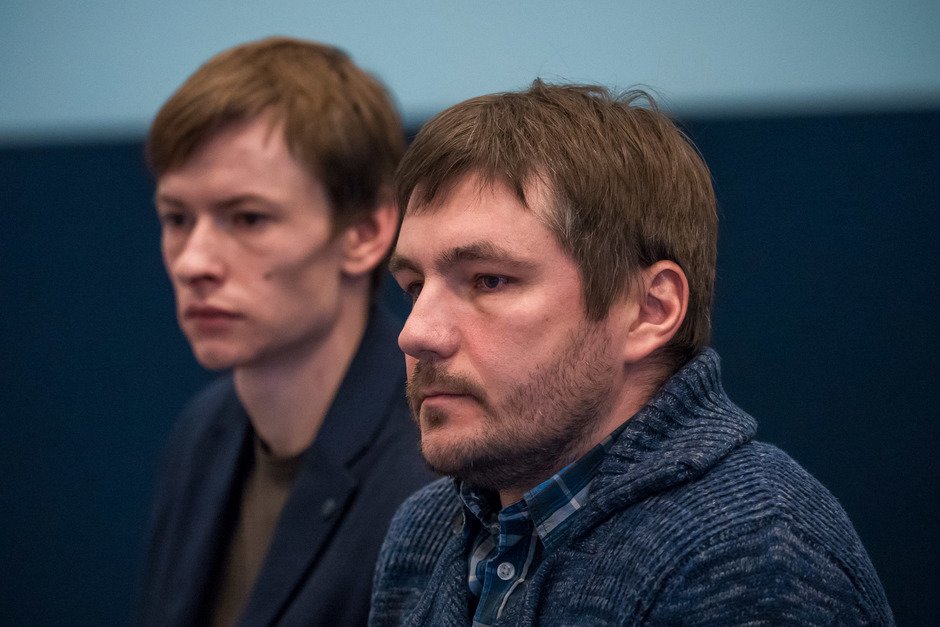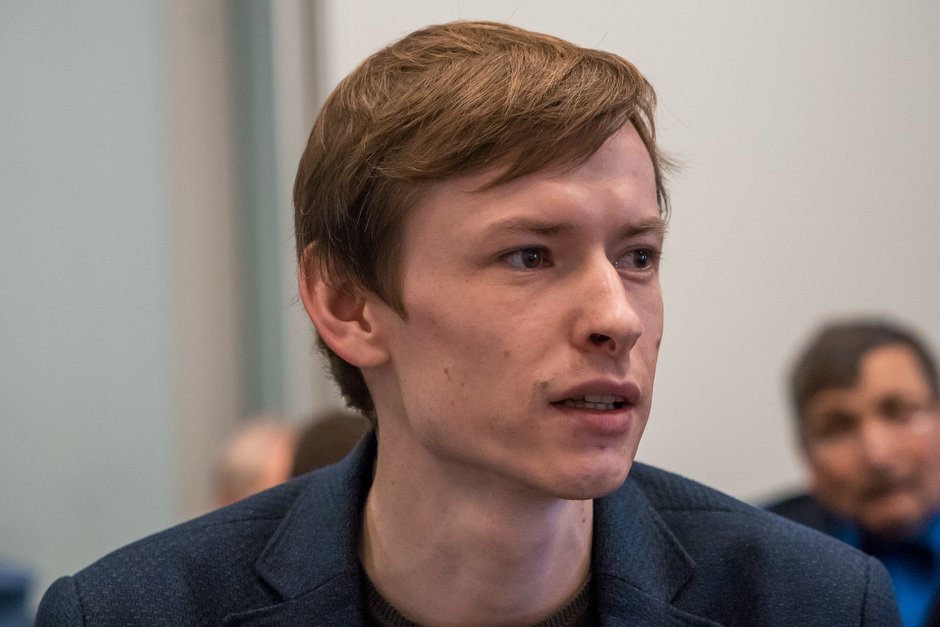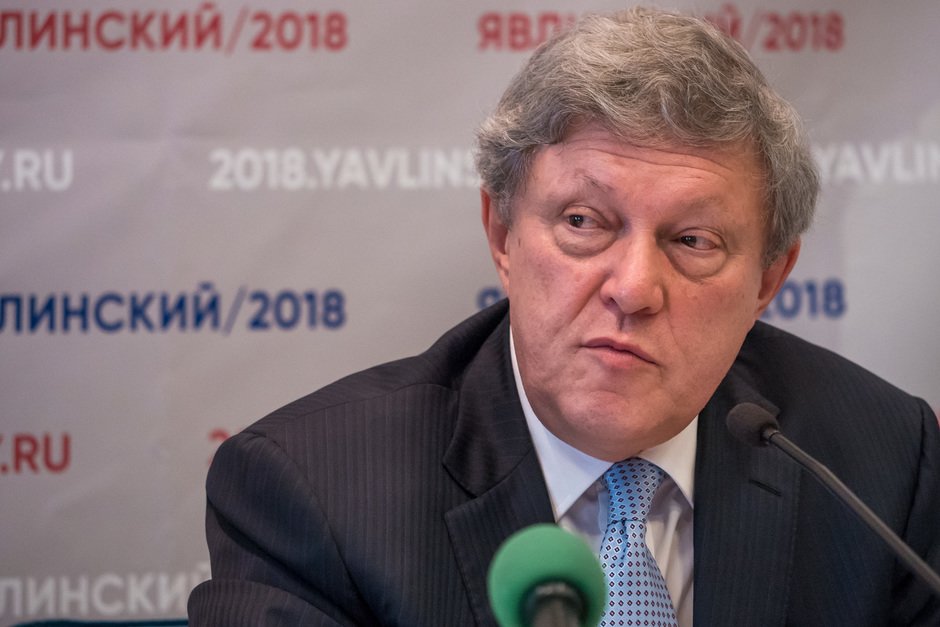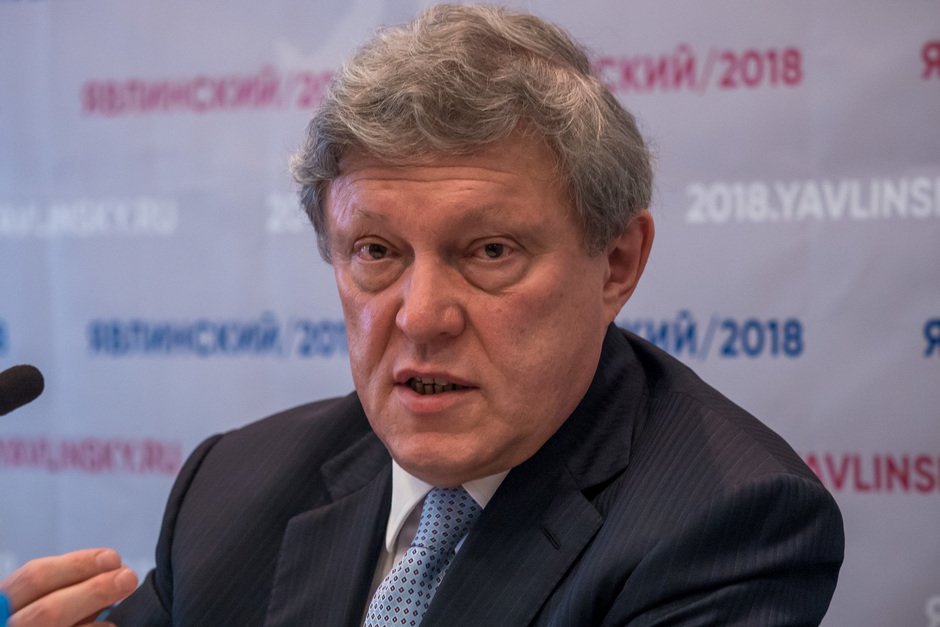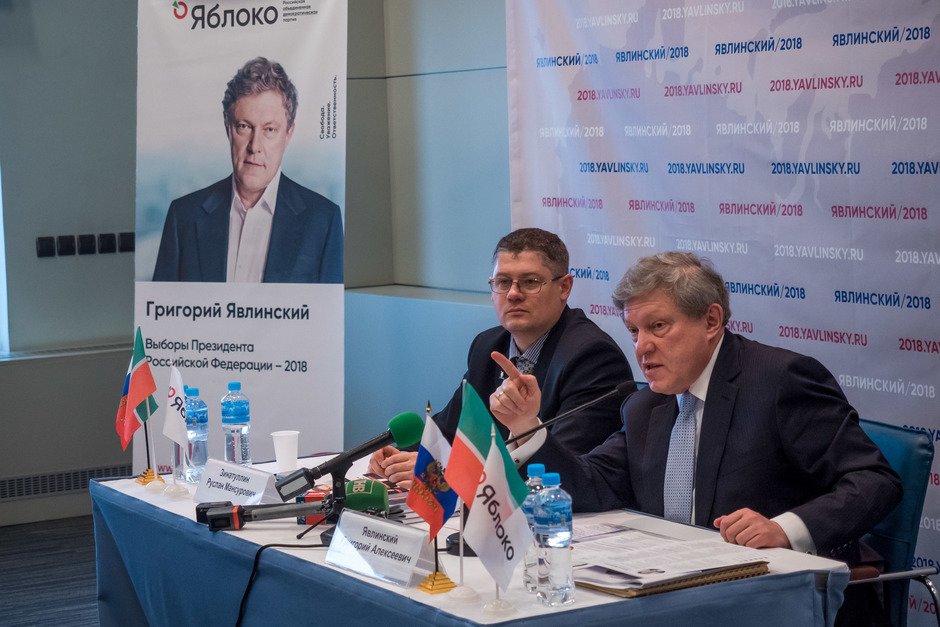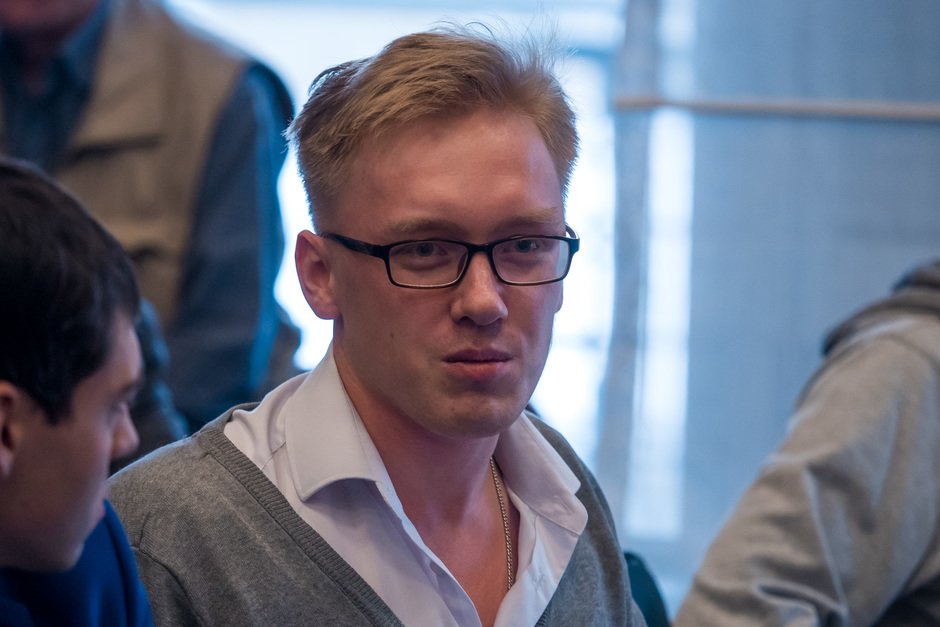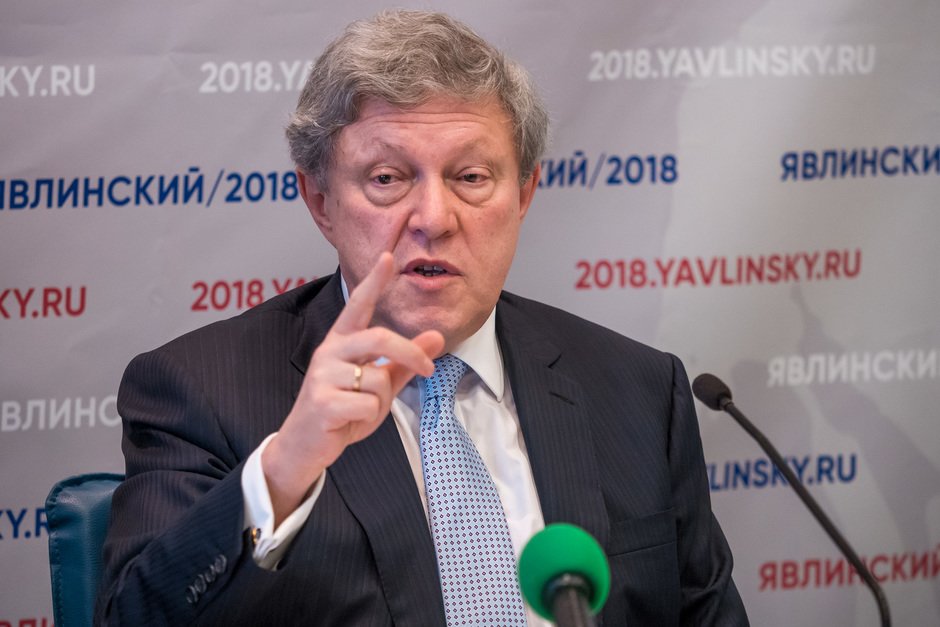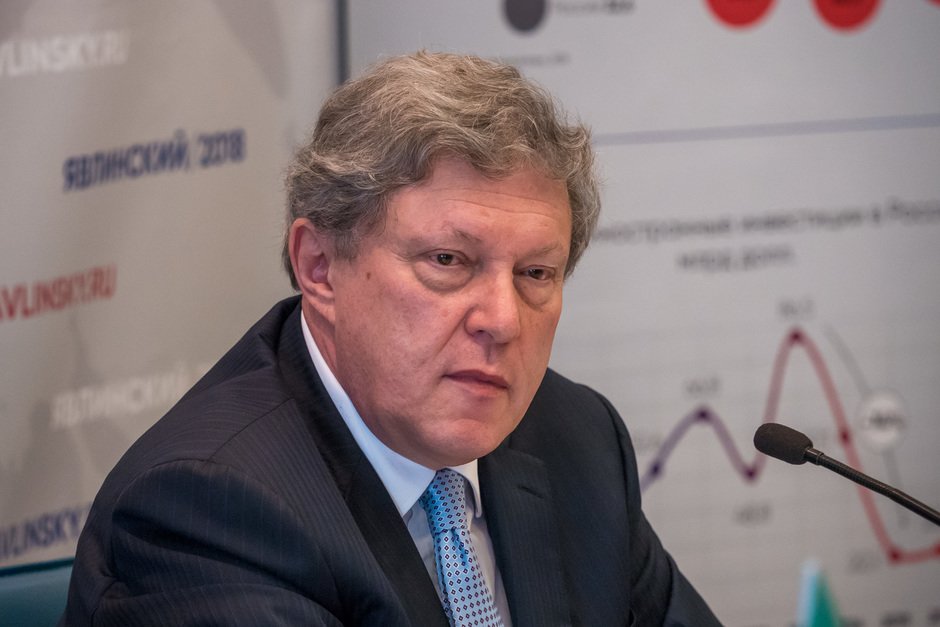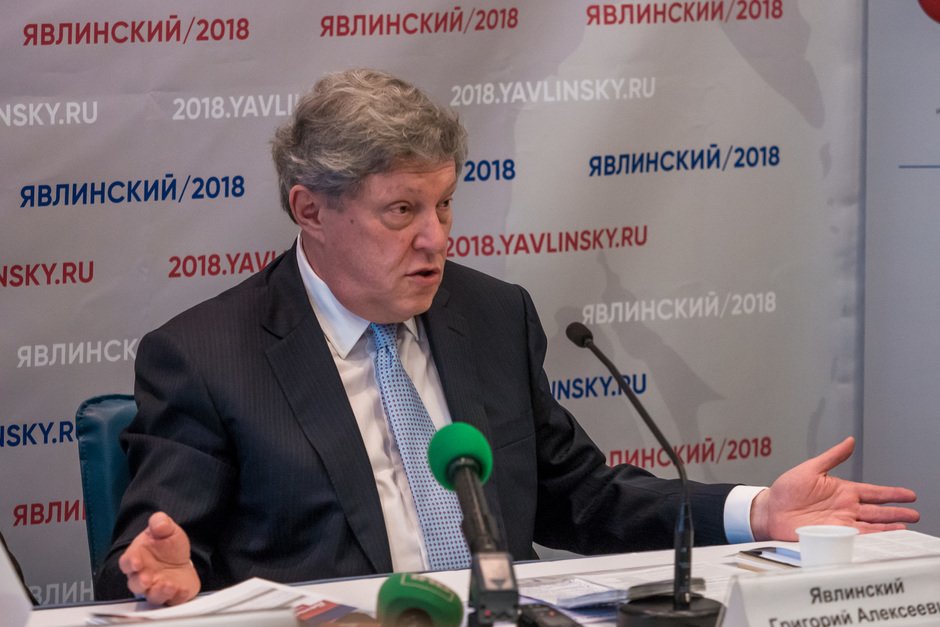Yavlinsky promises Tatarstan a 'tax revolution'
Tatarstan should keep 66% of incomes because the federal budget has a resource at 2,7 trillion rubles, the politician believes
Politician Grigory Yavlinsky held a press conference in Kazan and told about his programme to take the economy out of stagnation. His proposals are based on the principles of 'economic federalism'. In the opinion of Yavlinsky, a large part of the incomes should stay in Tatarstan and other regions, the tax system needs to be decentralized, and the federal budget needs a serious revision. Yavlinsky's arguments make sense, but they contain a grain of populism, experts of Realnoe Vremya say.
The strategy 33/33/33
Grigory Yavlinsky, who in November declared the decision to participate in the presidential election, visited Kazan within the framework of the informal tour. The founder of the Yabloko party began communication with journalists with a statement on prospects of Russian economy. According to Yavlinsky, the prospects are 'very disturbing'. ''As you know, the Russian economy today is being in such a position that there are many topics that deserve very serious attention,'' he said.
The root of the problem, according to Yavlinsky, lies primarily in inefficient public expenditures, unfair tax system and wrong budget priorities. As an alternative he proposed his programme, which he described as 'the new fiscal policy', or the policy of 'economic federalism'.
The programme is divided into several blocks, the first of which concerns the distribution of incomes within the budget system. Regions and municipalities need to keep a lot more money than they have now, Yavlinsky said. As an example, the politician cited Tatarstan. Today, 54% of its incomes go to the federal centre, the regional budget keeps 38,8%, the remaining 7% — municipalities. Yavlinsky believes that it is necessary to share incomes equally — 33% to the center, a region and municipalities each.
It is mainly about decentralization of underlying taxes, including tax on profit of organizations and individuals. When a high proportion remains in the region, 'then the economy will live, people will be interested to work'. ''I would say that it's not just a tax reform, I would call it a tax revolution,'' Yavlinsky said.
The politician proposed to finance the obligations of poor constituent entities by refusing from 'inefficient' expenditures (participation in the Syrian campaign, support of Crimea and Sevastopol, the construction of the Kerch Strait Bridge, the fountain in Grozny, Zaryadye Park in Moscow, etc.).
According to the calculations of Yabloko analysts, the amount of 'inefficient' spending of the budget reaches 2,6—2,7 trillion rubles. ''We need to stop excusing [foreign] debts, to demand corporations to pay dividends, to cease to build stadiums for 45 billion rubles, and more than that — the fountains for 60 billion rubles. This all should be stopped, and then we will have enough money,'' Yavlinsky said.
Besides, the leader of Yabloko believes that it is necessary to reshape the existing structure of spending by cutting funding of the army and military industry, police, security services and state apparatus. At the same time, it is necessary to increase the share of social expenditures of the budget, budgetary investments and expenses on environmental protection.
All of these measures, Yavlinsky claims, will lead to an economic growth, and 'the total tax revenues will increase dramatically'.
Truth or populism?
Changing the budget parameters in itself will not lead to economic growth. But the main part of what Yavlinsky says is 'the truth' which no one disputes: spending on defense and security in Russia is really 'abnormally high', says economist and Associate Professor at Ranepa Sergey Khestanov. A conventionally adequate level of these expenditures can be considered as 2% of GDP. For example, China spends 1,9% on defense, and the US — 3,3% (it is the highest level among developed countries). In Russia, according to PwC, defence spending exceeds 5% of GDP.
These costs force Russia to maintain high taxes, Khestanov says. The overall tax burden on companies in our country is higher than in Germany, which is considered a country with a major burden on business (53-55% in Russia compared to 47% in Germany). This leads to that many new businesses just don't appear, ''In Russia, by and large, two types of businesses are developing: either extra large, or, conversely, the smallest ones, which often not registered at all. Everything between these two extremes is developed very poorly.''
Excessive centralization of taxes greatly reduces the possibilities of the regions, the economist continues. Instead of creating the conditions for business, the regional authorities 'concentrate on wheedling money'.
Talks about the cost of the bridge in Crimea are purely political, and it is useless to discuss a refusal from these costs, says expert on budget policy Arseny Mamedov. ''We can duscuss it's right or not, but it will be purely theoretical reasoning.''
As for defense spending, the budget for the year 2018 provides for its reduction. However, it is possible that in the course of budget execution they will be increased. This has already happened, Mamedov says — at the end of the year it was declared that it was necessary to help defense companies to pay off bank loans.
It is also too ambiguous with cuts in inefficient spending, Mamedov continues. In the past year, the government agencies were already set the task to reduce them, but at times this led to the fact that some agencies had to cut even effective spendings, ''It was a formal reaction to the orders from the top.'' However, there is still a reserve for a change of budget priorities, Mamedov believes.
